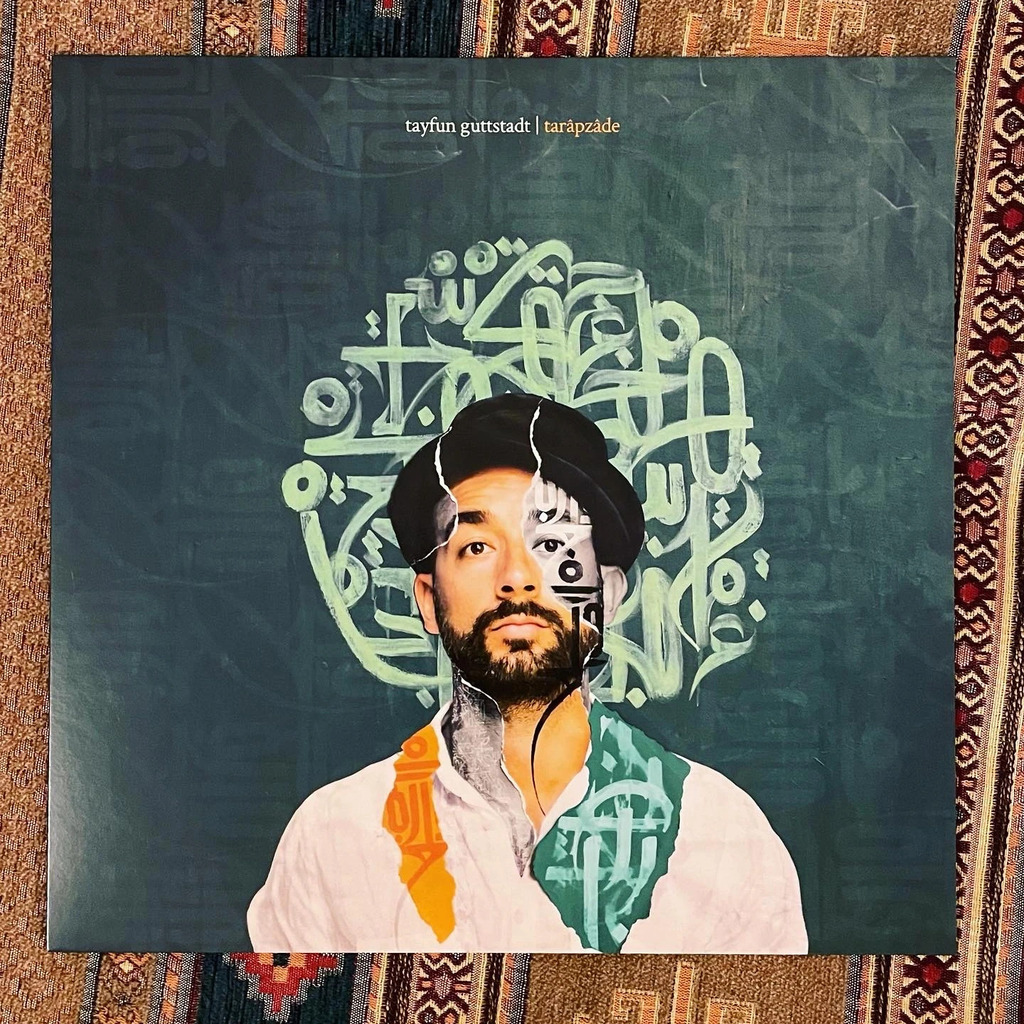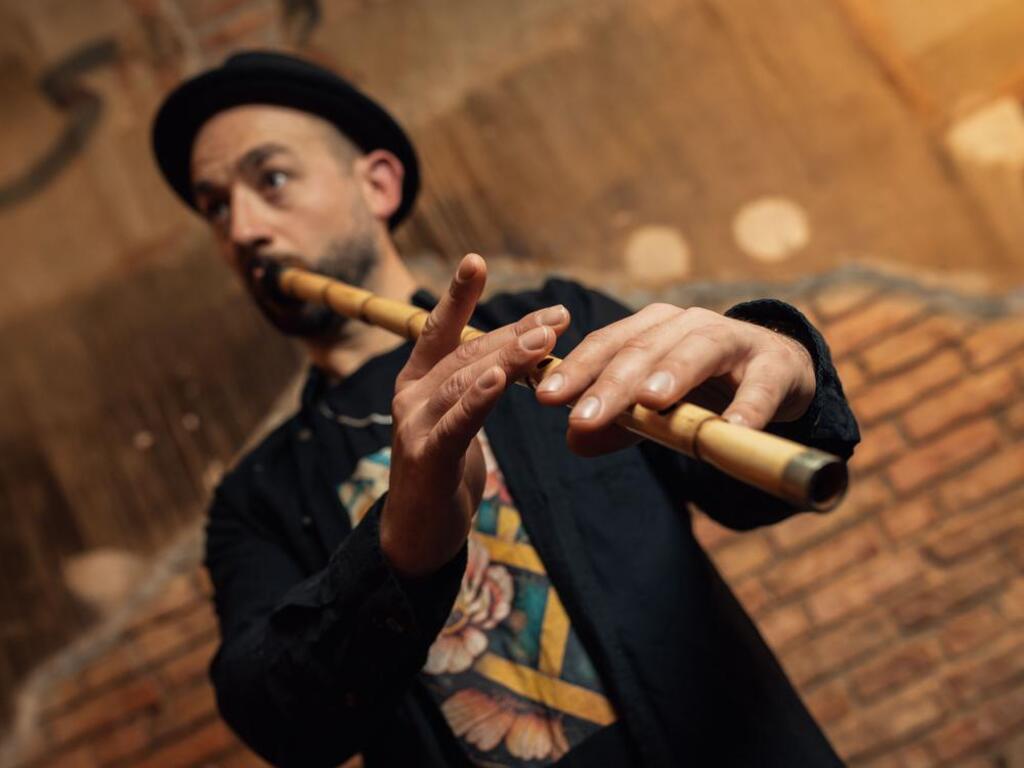Tarapzade – "Seek it in yourself"

Electronic percussion is joined by a melancholic, sighing ney. After a few bars, hip-hop beats begin driving the music forward. And finally a qanun (a Turkish box zither) comes in to complete the sound. All these elements, which would never normally meet – let alone in a folk song from the spiritual tradition of Anatolia – come together on the sixth track of Tayfun Guttstadt's album "Tarapzade", to intriguing effect.
One piece – "Cevrimiz" – is characteristic of the cultural mash-up that runs through the whole album. The poem at its heart, "Did I not tell you?", penned by Pir Sultan Abdal, a 16th-century bard in the Alevi-Bektashi tradition, warns of the trials and tribulations of the dervish path. Yet alongside Turkish Sufi verses, Guttstadt's fusion-rich album also features love songs and some of his own poems.
Guttstadt is a multi-instrumentalist who, among other things, plays both the ney and the guitar. As a result, the instruments on the record sometimes have a decidedly Turkish character, while echoes of Arab or Persian music are also heard. "Tarapzade" is the 35-year-old musician and author's debut album – the result of a three-year-long creative journey, but also of a life lived between worlds.
The child of a German mother and Turkish father, Guttstadt was born in Hamburg and now lives in Berlin. His late father came from the Konya region and was a Hafiz, meaning he could recite the entire Koran by heart. He subsequently became a teacher and a socialist, and was forced to leave Turkey due to persecution. Once settled in Hanover, he started publishing his own exile newspaper.
Between two stools
"I wanted the album to express my cultural identity," says Guttstadt. "I realise that I often rub people up the wrong way. Either I engage too much with tradition and Ottoman culture, which some people don't understand, or religious people don't get why I listen to hip-hop, so it's often a question of the devil or the deep blue sea."
But on the album, this contradiction seems to resolve itself. In Guttstadt's music, traditional and modern blend together into a self-assured whole: "I don't see any tension there; everything harmonises wonderfully. Tarapzade is me saying: this is me, deal with it."
A track called "Hararet", for instance, comes over entirely as a hip-hop piece, but is underlaid with a breathy zikr of the syllable "hay", which Sufis repeat in their rituals. Al-Hay is one of the ninety-nine names of Allah, and can be translated as "the living one" or "life-giving". The song's lyrics are taken from a poem by the Anatolian saint Haci Bektas Veli, whose tomb in central Anatolia is one of Turkey's foremost places of pilgrimage.

The lyrics taken from Haci Bektas contain the line, "Whatever you are seeking, seek it in yourself. You will not find it in Jerusalem, Mecca, or on the Haj". The Sufi principle of introspection seems to suit the project of cultural self-exploration that Guttstadt's album represents.
Leading people back to their inner selves again and again, and explaining the meaning of life to them, so that they don't abide mechanically by the traditional forms and rules of religion, is a recurring motif in the verses of the wise men and saints of Anatolia. Many people in Turkey today have little access to this mystical heritage. And in Europe, this side of Turkish culture is scarcely known.
A treasure trove of spiritual poetry
"I wanted to show how beautiful the tradition of spiritual poetry is, and what a great treasure trove it is," says Guttstadt. "Tarapzade" plunges into the spiritual roots of the Anatolian tradition, which ultimately has a universal message. "I believe there is a lot to find there, and that treasure doesn't only belong to those who regard themselves as Turkish Muslims. It's a cultural heritage that should be kept alive."
Guttstadt's own verses clearly also draw on Sufi poetry, though with new elements mixed into it. One example of this is the song "Sekilsiz Ayna" (literally: 'mirror of the shapeless'): "We are the nightingales of an age that is yet to come / We are the transparent envelope of a letter not yet read / the open window through which no light comes / We, who cannot be measured by counting, are the mirror of the shapeless."
Marian Brehmer
© Qantara.de 2023
Translated from the German by Ruth Martin
